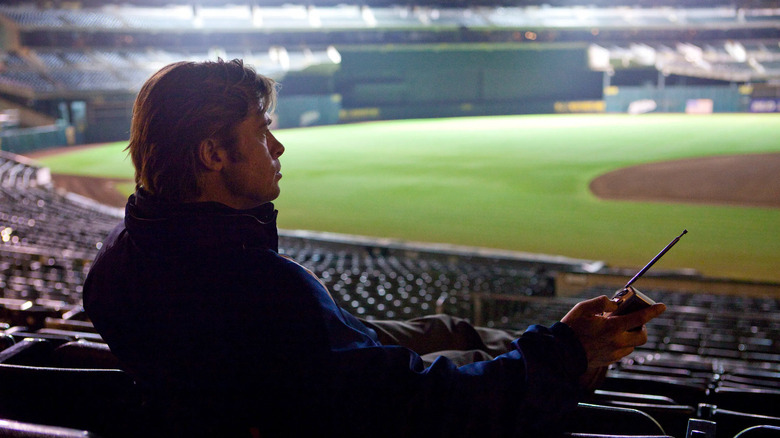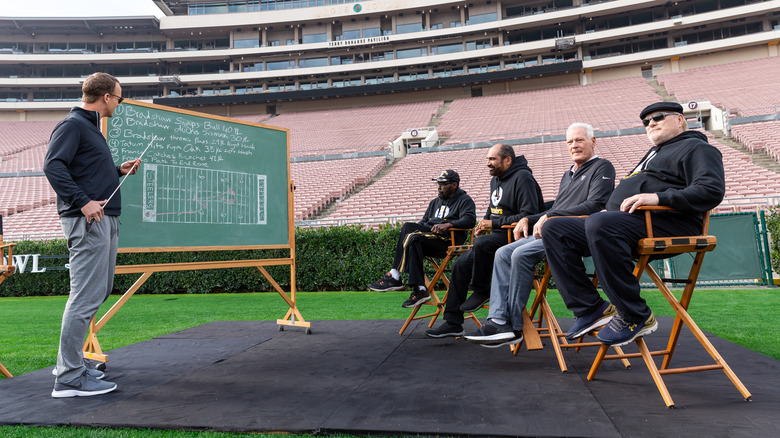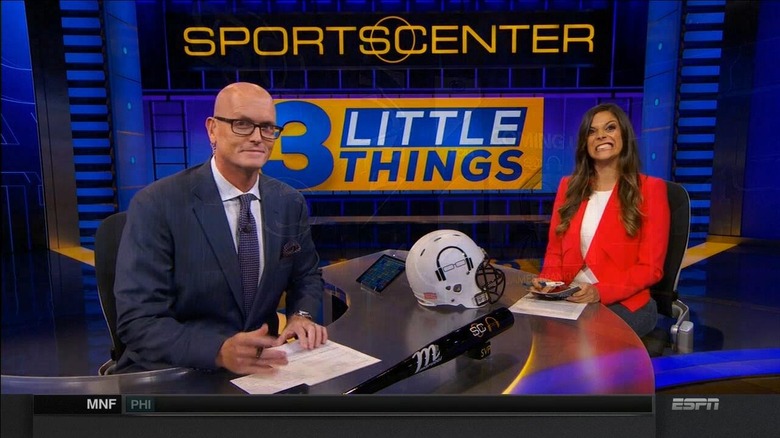ESPN Is About To Fully Embrace Streaming, And It Could Be The Nail In The Coffin For Cable TV
The writing has been on the wall for some time: the future of media is going to be dominated by streaming. Period. That is why almost every major media company is going all-in on a big streaming service (or two, or three) in addition to keeping the theatrical movie business alive in the hope of carving out a future beyond cable. Now, Disney is looking to potentially put the biggest nail in the coffin for cable TV and satellite by launching ESPN as a standalone streaming service in the coming years. This isn't happening tomorrow — but rest assured, it is happening. When it does it would, in effect, help to truly kill old-school pay TV as we know it.
According to The Wall Street Journal, Disney and ESPN have begun laying the groundwork to begin selling the premium sports network as a standalone, direct-to-consumer option. Yes, Disney has ESPN+, which has amassed more than 25 million subscribers, but it does not broadcast a live feed of the main ESPN network, which remains one of the biggest draws for almost anyone that still subscribes to a cable TV package. The plan even has an internal codename of "Flagship," suggesting its importance to the future of the company.
ESPN would continue to offer its channel through cable providers, but they have been negotiating contacts with carriers to allow for the streaming spin-off. This could kneecap those companies in the process though, as many consumers – particularly younger ones – are tired of paying for TV bundles, getting channels they don't use. For people where sports is the main attraction? This would be game over, as the price of ESPN as a standalone service would surely be less than a cable bill. That's what Disney is counting on.
ESPN is absolutely necessary for cable providers
As it stands, ESPN is an essential service for cable and satellite TV providers. ESPN gets an average of $9.42 from the average cable bill. Other networks? They average less than 50 cents. That's a gigantic slice of the pie, and it's also why the network is still a huge moneymaker for Disney. It's also why Disney and CEO Bob Iger haven't already pulled the trigger on a streaming option, as the cable money, along with contracts from major sports organizations such as the NFL and NBA provide revenue that streaming simply can't make up for ... at least not yet.
Iger, for his part, knows streaming is the future and that any company hoping to be a major player in the coming years must adapt or die. The tricky thing is, cable revenue is still important for now, but those revenues are declining every day. Revenue was down $1 billion from Disney's TV networks in the most recent quarter compared to last year. That signifies just how many people are cutting the cord, and that's only going to accelerate. The way to win in the long run is to get ahead of it and give consumers options. "It's a huge decision for us to make and we know that we've got to get it right both in terms of pricing and timing," Iger said earlier this month regarding an ESPN streaming option. The time, it seems, is approaching.
Consumers can already get ESPN through streaming TV providers such as Sling or YouTube TV (which just paid a king's ransom for the NFL Sunday Ticket rights), but those packages are similarly pricey and don't necessarily solve the problem of having to pay for a bunch of channels you don't want. ESPN as a standalone service? That does solve the problem for a lot of people.
The future is calling
The transition period will be messy, but it needs to happen. Especially because streaming, as it exists, is hitting its limits. Disney+ lost 4 million subscribers globally in the most recent quarter, which comes at a time when the company is desperately trying to make streaming profitable. Currently, Disney is losing a lot of money (as is almost every other studio) in attempting to catch up with Netflix. Interestingly though, the bulk of those 4 million subscribers had to do with Disney losing the streaming rights to cricket games internationally, emphasizing the importance of sports in the streaming-focused future.
To that end, Disney's streaming strategy will probably need to further diversify in order to make it profitable down the road. ESPN as a streaming option seems like the first big step towards abandoning cable altogether. Though Disney is also beginning to combine Hulu and Disney+ under one roof as well. If the ESPN move works, we could see other major channels attempt similar moves. That's when the death of the cable TV era will truly be upon us.
It's not like it's going to happen overnight though. This has been creeping up on us for some time. But much like the death of video stores, the signs will be obvious and, one day, it will inevitably come crashing down, leaving us with a streaming-only future. What will that look like? Will it be better? A conversation for another time perhaps, but it's a future that Disney is not willing to fight, that much is clear.


